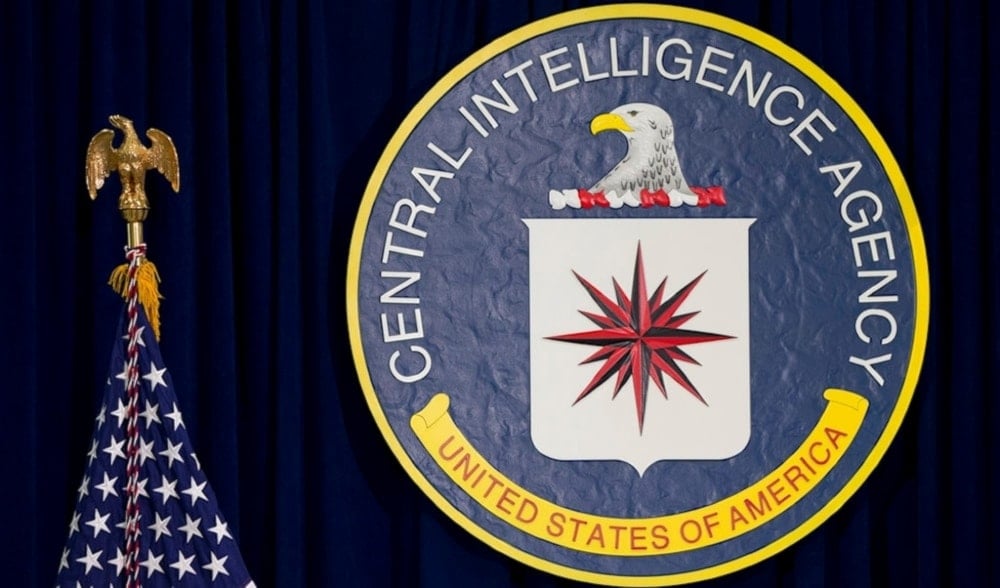CIA shifts focus to China as top threat amid tech war: Axios
The CIA is restructuring under new leadership to prioritize China as a top threat, focusing on helping US companies maintain a decisive technological edge in AI, biotech, and chips.
-

The Central Intelligence Agency logo appears next to the flag of the United States of America in this undated photo. (Carolyn Kaster/AP)
The Central Intelligence Agency is undergoing a major shift in its strategic priorities, with new leadership placing China at the top of its threat assessment.
Deputy Director Michael Ellis stated in an interview with Axios that the agency is now focused on helping US companies maintain "a decisive technological advantage" in key sectors such as artificial intelligence, semiconductor chips, biotechnology, and battery technology.
According to Ellis, China represents an "existential threat to American security in a way we really have never confronted before." This new CIA China strategy reflects broader concerns within US national security circles about China's rapid advancements in high-tech industries and its expanding global influence.
To respond, the agency plans to enhance collaboration with private sector leaders, aiming to incorporate innovations and operational efficiencies from companies like those led by Elon Musk, whom Ellis mentioned by name.
While China remains the central concern, Ellis clarified that Russia continues to be a significant challenge, alongside other adversaries, including Iran and the DPRK. He also noted a renewed emphasis on transnational threats, especially drug cartels, with the counter-narcotics division set to receive elevated attention within the agency.
Workforce restructuring, private sector collaboration
Ellis underscored the need for a reformed workforce that is better equipped for modern challenges, citing that traditional Cold War-era human intelligence tactics are becoming less effective due to sophisticated surveillance technologies employed by adversaries. As a result, the CIA is actively seeking recruits with STEM backgrounds, particularly those with technical expertise.
He described upcoming staff cuts not as a setback but as "an opportunity" to reshape the agency's workforce, aligning it more closely with current technological and geopolitical realities.
Touching on internal dynamics, Ellis stated the CIA must avoid the "weaponization or politicization" of intelligence. According to Axios, this appears to respond to President Donald Trump's claims about opposition from within the intelligence community.
Ellis emphasized the need to eliminate "distractions and biases that I think may have existed in the past," although he offered no specific examples.
This perspective mirrors sentiments expressed by other senior officials, such as Defense Secretary Pete Hegseth, who have criticized ideological trends within national security institutions.
China’s advanced AI may surpass US efforts
Chinese scientists appear to be on track to develop next-level artificial intelligence infused with Chinese Communist Party ideology, potentially pushing China ahead of the United States in the race for human-like artificial general intelligence (AGI), according to a recent study.
With strong backing from the Chinese government, two leading AI institutes based in Beijing have opened branches in Wuhan to jointly develop sophisticated alternatives to large language models (LLMs), the generative AI systems that currently dominate the focus of Western developers and policymakers.
William C. Hannas, the report’s lead author, senior analyst at CSET, and a former CIA expert in Chinese open-source intelligence, warned that the US risks falling behind, and may already be losing ground.
According to Hannas, "The two advantages the U.S. has, chips and algorithms, are being eroded by indigenous Chinese workarounds. Worse, the two sides are not playing the same game. US companies are fixated on large statistical models, whereas China covers its bets by funding multiple AGI paths."

 3 Min Read
3 Min Read










